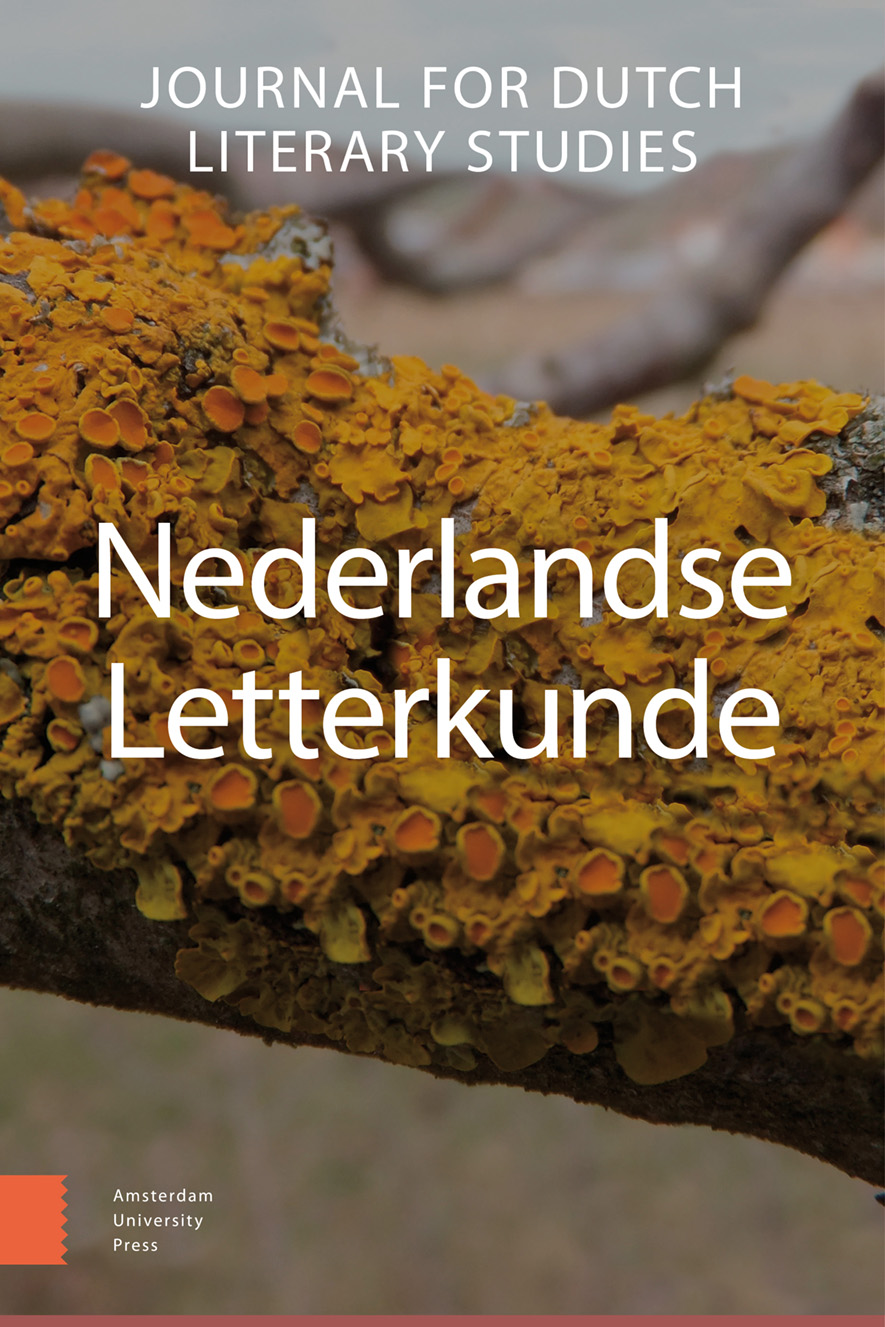-
oa Auteursvariant, ‘variance’ of ‘duplicité énontiative’?
Herlezing van Carel Vosmaers Vlugmaren en Vogels van diverse pluimage
- Amsterdam University Press
- Source: Nederlandse Letterkunde, Volume 21, Issue 1, Feb 2016, p. 35 - 63
Abstract
Authorized variants, ‘variance’ or ‘duplicité énonciative’?
Rereading Carel Vosmaer’s Vlugmaren and Vogels van diverse pluimage
Editorial principles demand a survey of ‘authorized variants’ of all editions of a printed book. How should we address these variants: must they be considered to be changes inspired by the literary genius of an autonomous author? Does New Philology offer an alternative, derived from the study of medieval and early modern manuscripts? For an adequate interpretation of mouvance and variance, the concepts it has in store to tackle the variability of texts, New Philology points at the context of production and consumption of the texts, leaving the reader of printed (nineteenth-century) books in the dark about how to investigate this ‘context’. Discourse analysis, as explained by Dominique Maingueneau, might offer a helping hand, by defining concepts as scénographie and énonciation; concepts that tie ‘context’ to literary phenomena. In this essay I try to interpret variants in Carel Vosmaer’s Vlugmaren and Vogels of diverse pluimage by constructing a context of discourses and changing world views.


